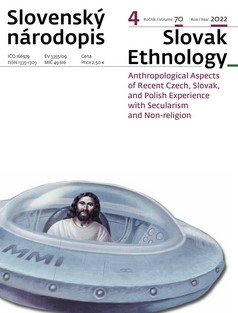‘Uzbek Speculators’ Behind the Front Line. A Firmly Rooted Russian Colonial Stereotype Versus the Soviet ‘Friendship of Peoples’
‘Uzbek Speculators’ Behind the Front Line. A Firmly Rooted Russian Colonial Stereotype Versus the Soviet ‘Friendship of Peoples’
Author(s): Jerzy RohozińskiSubject(s): Agriculture, Local History / Microhistory, Political history, International relations/trade, WW II and following years (1940 - 1949), Corruption - Transparency - Anti-Corruption, Peace and Conflict Studies
Published by: SAV - Slovenská akadémia vied - Ústav etnológie a sociálnej antropológie Slovenskej akadémie vied
Keywords: Soviet ‘Friendship of Peoples’; ‘Great Patriotic War’ mythology; stereotyping Central Asians; obstacles in building the ‘imagined community’ of the Soviet Union;
Summary/Abstract: In my paper, I try to analyze the historical context of archival documents from the second half of 1943, where traces of the conspiracy theory that Uzbek workers were trading their food rations can be found. Accusations of trade and speculation in food drew heavily from the pre-revolutionary stereotypes and conspiracy theories from the period of the Revolution and the Civil War. Increasing theft and embezzlement in the trading network of food, textiles, and manufactured goods, the misuse of state and kolkhoz property, and conspicuous consumption were also reported from Uzbek Soviet Socialist Republic in the early 1940s. Some premises for the conspiracy theory about the Uzbek propensity to speculate and conduct bazaar trade remained valid until the early 1980s, as seen in the so-called ‘cotton affair’, which triggered a series of rumors and images about Uzbek nepotism and mafia structures among the Soviet public. I argue that this rather represents traditional work preferences among Central Asian populations, where it possible to identify one of the sources of the role of a ‘provider of stereotypes’ played by the region as a periphery of the Russian/Soviet Empire.
Journal: Slovenský národopis
- Issue Year: 70/2022
- Issue No: 4
- Page Range: 549-562
- Page Count: 14
- Language: English

